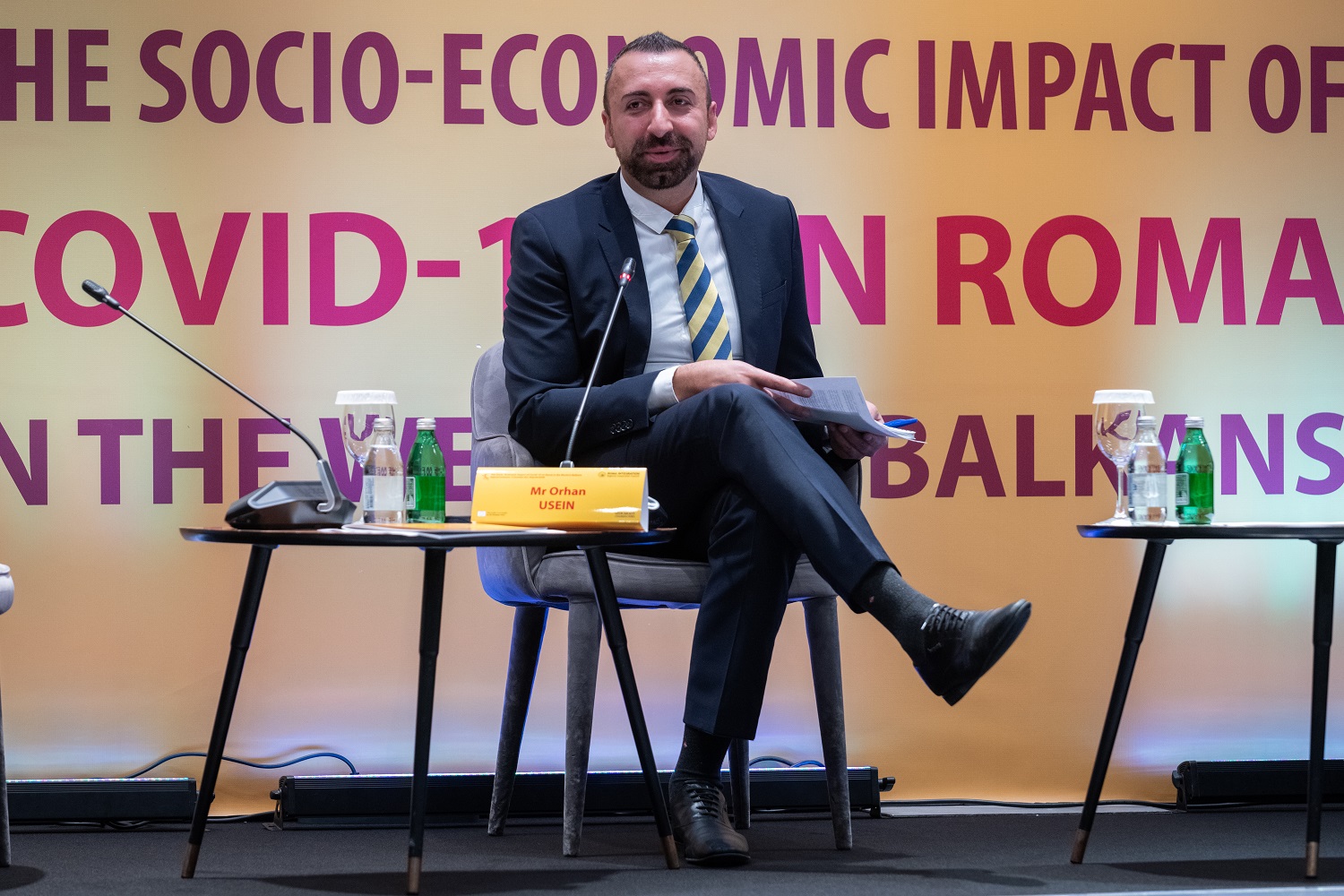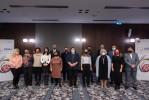Usein: The school dropout rate of Roma children increased by 11%, while every second Roma reported reduced income due to the impact of Covid-19
- 13 Dec 2021
- News

Orhan USEIN, Roma Integration Head of Office at the regional conference on the socio-economic impact of Covid-19 on Roma in the Western Balkans (Photo: Nemanja Brankovic)
“The regional analyses on the impact of Covid-19 on Roma in the region confirmed that the highest (negative) consequences for Roma are detected in the areas of employment and education. Three out of four Roma children did not receive any help during online lectures, both from their teachers or classmates, and the dropout rate increased by almost 11% at the regional level, mostly due to the difficult financial situation of the families, as every second Roma reported reduced income. Knowing the challenges faced by our people, RCC’s objective is to strengthen the involvement of citizens in promoting, shaping and implementing mainstream policies and processes,” said Orhan Usein, Regional Cooperation Council (RCC)’s Roma Integration Head of Office at the opening of the regional conference on socio-economic impact of Covid-19 on Roma in the Western Balkans taking place in Belgrade today.
The conference, organised by the RCC’s Roma Integration project, gathered around 70 representatives from the public institutions from the Western Balkans in charge of Roma integration, representatives of international organisations, civil society, as well as representatives of the European Union and the RCC to discuss the findings of the analysis on the impact of Covid-19 on Roma in the Western Balkans, and seek the solutions. The purpose of this analysis was to contribute to a better understanding of the socio-economic impact of the Covid-19 on Roma in the areas of education, employment, health, housing, and non-discrimination.
“Through the mainstream processes that we committedly work on, including the Digital and Green Agendas, we aim to ensure that the measures also benefit the hard to reach disadvantaged groups. Our stance is that Roma must not be left out from these agendas. There should be a systematic approach to shaping the transformation in Roma communities to enable better access to online education and recycling industry and with that better preconditions for future employment,” said Elda Kalaja, Head of RCC’s Secretary General Office in her introductory speech.
Through its Roma Integration project the RCC is introducing the novelties that our region has to define and combat - antigypsyism, clearly set by the EU as an objective to fight social exclusion of Roma. The RCC will assist the decision-makers to translate the recognition of antigypsyism into effective action, while also ensuring that the Western Balkan governments monitor the progress and work hand in hand with the EU institutions on Roma equality, inclusion and participation.
“We are aware that we cannot continue with business as usual approach. Our support and policy need to be reviewed. This revision needs to cover different areas. Change of order of priorities. Priority remains the same but the urgency focuses on the need to reflect what needs to go first. New areas such as antigypsysm, digital, green agenda need to enter our focus as well,” said Marta Garcia Fidalgo, Roma Policy Coordination at European Commission’s DG NEAR.
Neda Korunovska, Advocacy Manager from Open Society Foundation Roma Initiatives Office, added that the recent OSF surveys prove that people working in the private sector agree that majority of Roma are discriminated as labour force even when they have the same competence and skills as others. “Smart and inclusive work of the companies is not just a matter of corporate social responsibility but also a matter of smart economic diversity that is proven to support creativity and innovation.”
The analysis, which was conducted in the Western Balkan region, includes both regional and economy-specific data. It evaluates the current situation of Roma and provides data for defining tailor-made measures that can be incorporated into relevant mainstream policies and new Roma integration strategies. The publication can be downloaded from the Roma Integration website https://www.rcc.int/romaintegration2020/docs_archive.
Agenda - Regional Conference Impact of COVID-19 on Roma
The socio-economic impact of Covid-19 on Roma in the Western Balkans - analysis
Conference report - Impact of covid-19 on Roma in the Western Balkans
Presentation - The socio-economic impact of Covid-19 on Roma in the Western Balkans - Nadir Redzepi
Presentation - Roma youth unemployment in North Macedonia - Mladen Frckovski
Presentation - Roma Access in Employment - IRCA
Presentation - Impact of Covid-19 on Roma education in the Western Balkans - Nedzad Jusic
Presentation - Closing the Gap in Educational Outcomes between Roma and non-Roma - Redjepali Cupi






